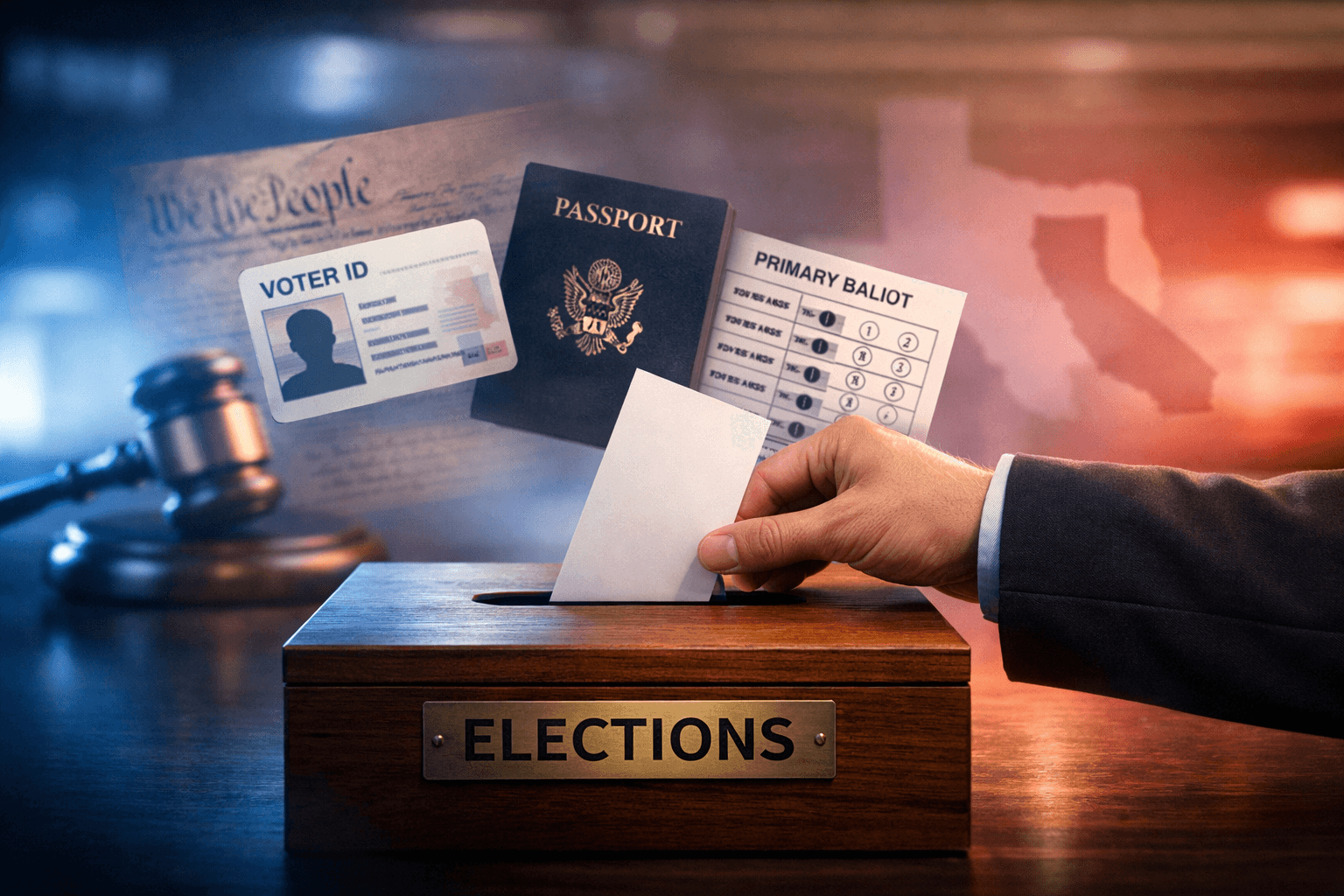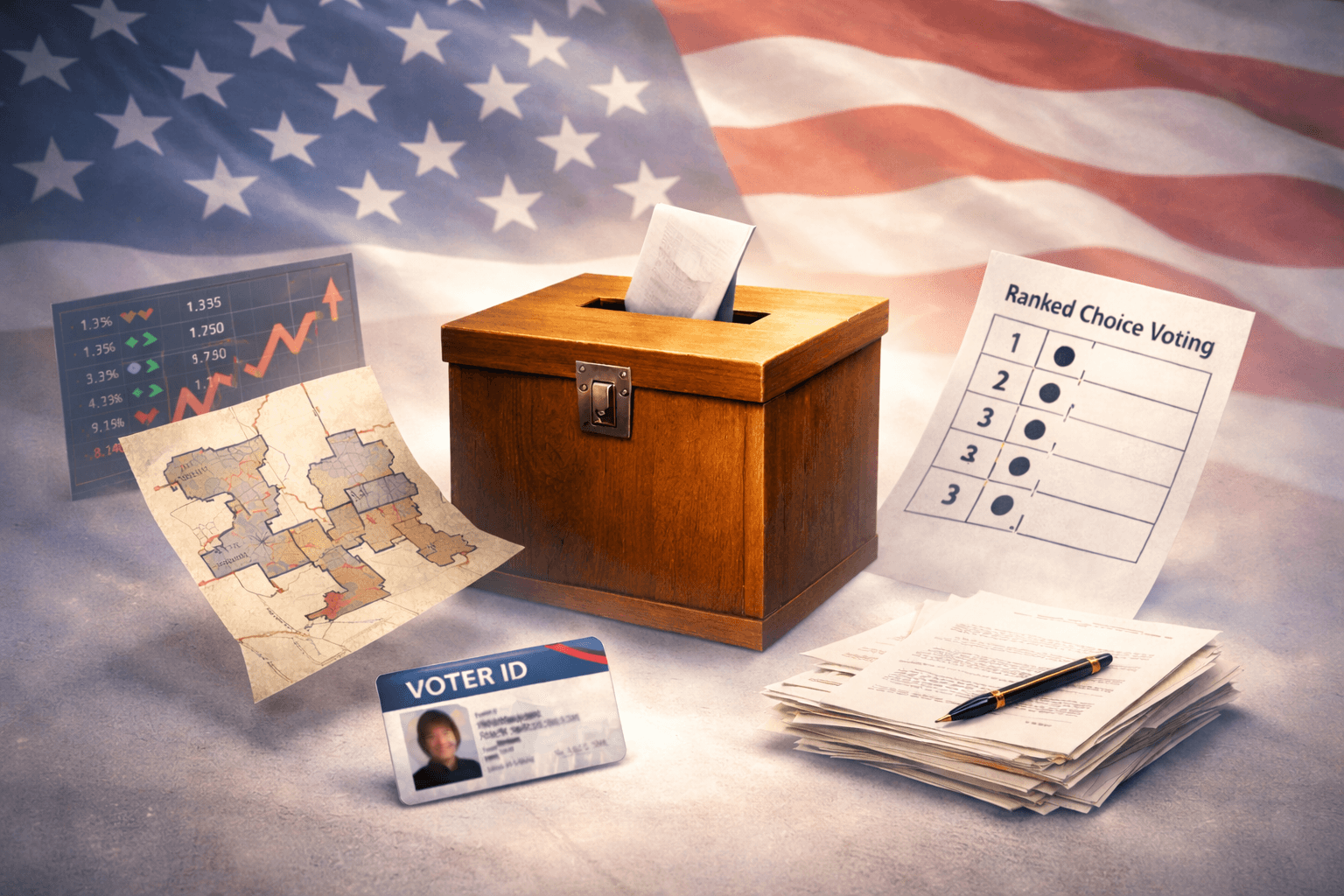New Documentary Asks: What If Party Bosses Didn't Control How We Vote?

In 2022, Alaska voters used a new election system that changed the way state voters thought about elections.
The primaries were no longer under the control of the political parties. Instead, all voters and candidates participated on a single ballot and the top four candidates, regardless of party, moved on to the general election.
Voters in the general could then rank candidates in order of preference under ranked choice voting (also known as instant runoff voting).
It was the first time in American history the reform combo was used. Nonpartisan primaries already existed in California and Washington. RCV was already used in Maine and dozens of municipalities across the US.
But Alaska showed the nation what was possible when the two reforms were combined, and since then, campaigns have emerged in several states to change the way voters elect public officials through similar proposals.
Many voters could see -- just as reformers in Alaska saw -- that when you put the most power over electoral outcomes into the hands of voters, it creates an incentive for candidates to do better by the people.
Veteran documentary filmmaker AJ Schnack is currently touring the nation and appearing in several film festivals with his new film, Majority Rules, which asks a very important question:
Can the nonpartisan electoral model in Alaska be the cure to what ails the US political system?
Namely, a lack of choice in elections, hyper-polarization that fosters greater division, and never-ending partisan gridlock.
He traveled across the country to talk to reform supporters and opponents to explore this fundamental question.
"One of the things that has been so fascinating making the film is just to see in different states that the party that believes that they have figured out the system are always the ones that hate the idea that we were going to change to open primaries and ranked choice voting," said Schnack in an interview for the Idaho Statesman.
In other words, it is most often the case that the party in power opposes nonpartisan reform, whether we are talking about Republican leaders in Montana or Democratic leaders in Washington, DC.
Nonpartisan open primaries and ranked choice voting do not inherently benefit one party or the other -- but they do give the parties less power to control electoral outcomes.
A power that rightfully belongs to the people.
Schnack's documentary getting featured in an Idaho news outlet is noteworthy because an initiative that takes after the Alaska model will likely go before voters in the state this November.
Reformers submitted their signatures on Tuesday.
Voters also have a chance to adopt similar election models in Montana and Colorado. Nevada voters are one election away from adopting a Final Five method, which works the same way -- except the primary advances 5 candidates.
Reformers in the District of Columbia have offered a semi-open primary that opens the door for approximately 73,000 independent voters with ranked choice voting in all District elections.
And, an Arizona initiative requires the state legislature to adopt a nonpartisan primary system and allows ranked choice voting for a system that advances more than two candidates.
This is a look at 2024 alone and does not include other states where campaigns are building support for similar reform proposals or where ranked choice voting and nonpartisan open primaries are advancing on their own.
"One of the (key things for me) was just the aspect of encouraging more voices to be involved in the process when you came to the general election," Schnack said.
"And certainly, there are a lot of people younger than I am, I think, who would like to be involved in and have more voice in the system that are often locked out because we really do have this binary choice where we're only going to have whoever the Republican is and whoever the Democrat is."
Check out the trailer for the documentary above. Idaho voters will have a chance to see the film in Boise on July 17. Screenings are also scheduled for New York, Los Angeles, Tacoma, and more.
 Shawn Griffiths
Shawn Griffiths






